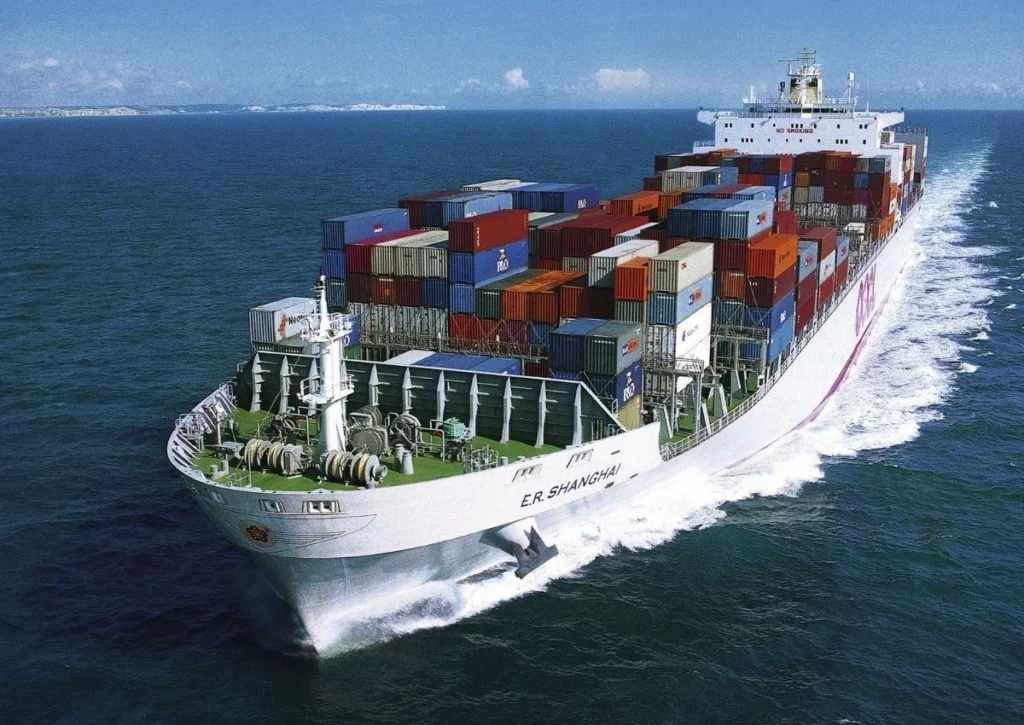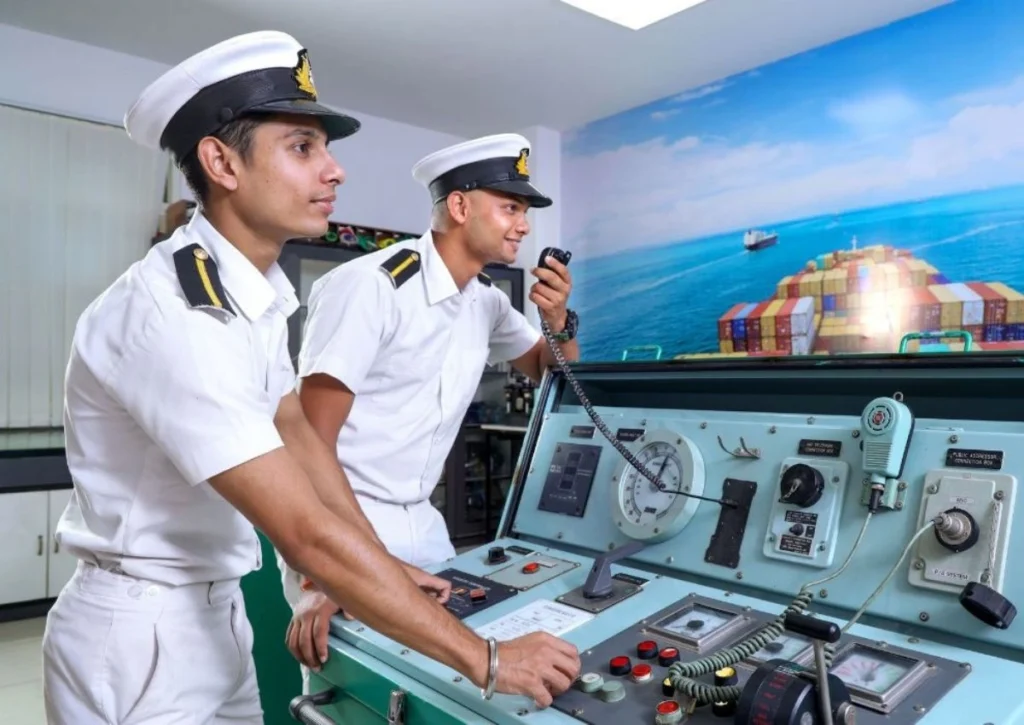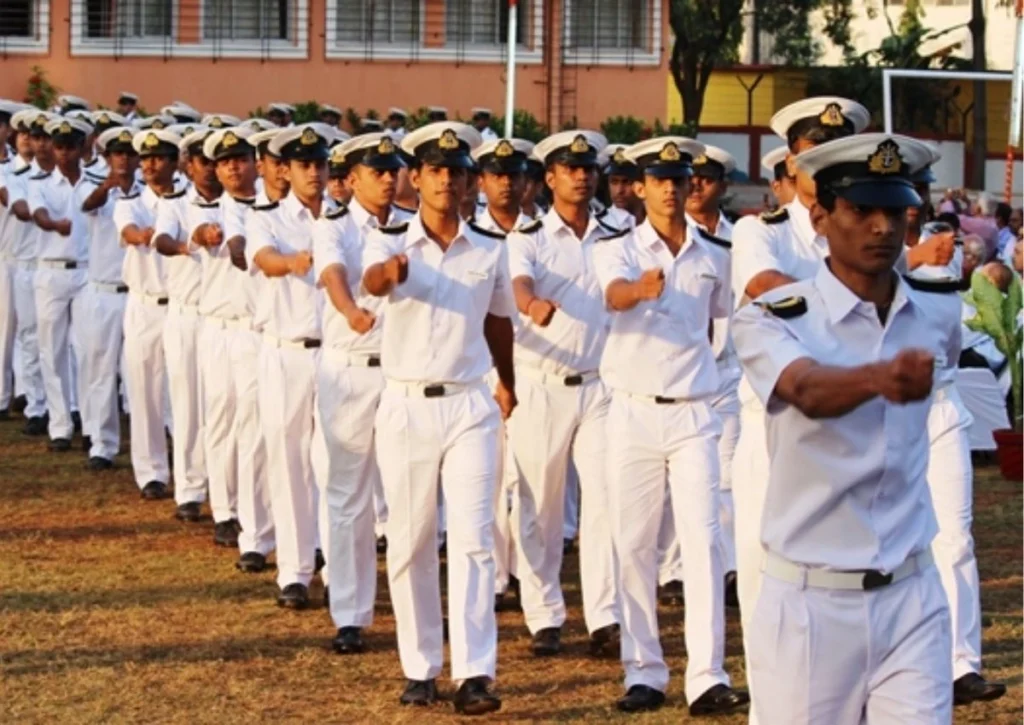Have you ever imagined what it would be like to wake up in a new country every couple of weeks and get paid a salary that most of the professionals can only dream of? As your friends are lying in traffic jams on their way to office cubicles, imagine that you are sailing a huge ship through the Arabian Sea or playing with dolphins as they race with your ship in the Atlantic.
It is not a dream; it is the life of thousands of young professionals who have decided to make their careers in the merchant navy.
The merchant navy is one of the most lucrative but least known careers the young Indians can choose at the moment. It is not a job; it is a way of life, which is financially liberating, world travelling, and advancement of career, which is quicker than most usual careers. But what is the merchant navy and more to the point, is it the right career choice?

What is the Merchant Navy?
The commercial shipping sector is made up of the merchant navy, whose duty is to carry cargo and sometimes passengers across the international waters. They are not military ships cruising around the borders but civilian ships with loads of oil and automobiles, food grains and consumer electronics. The Enterprise merchant ships are literally the unrecognized champions of keeping the world trades alive.
Your smartphone in your pocket, the laptop you are reading this on, and even the coffee you drank this morning, more likely than not, all had time on a merchant vessel. In the absence of the merchant navy, the world would come to a halt in terms of globalization.
The individuals who achieve this are deck officers steering the course, marine engineers keeping the engines running, and electro-technical officers running advanced electronics, who are the back-bone of an industry that, quite literally, links continents together.
Merchant Navy vs Indian Navy
The most common of them all is the misinterpretation of the merchant navy with the Indian Navy. Although the two professions are ship- and sea-related, they could not be more different in their objectives and habits.
The Indian Navy is a military unit that safeguards our maritime borders and interests in the security of our country. It is a military service whereby the warships are owned by the government, arranged for military life and long-term service agreements. You are serving your country with uniforms, with rigid military procedures and discipline.
The merchant navy, on the contrary, is purely business. The private companies or public shipping corporations own ships and are involved in business transportation. You are actually in the corporate world, only your office is floating on water and moving across the world. The life is based on contracts, that is, four to six months at sea and long leave of two to three months.
Financially, officers of the merchant navy usually have much greater salaries, which are often tax-free in cases of international routes that are to be covered by lengthy routes.
Senior captains or chief engineers may receive between eight and twenty lakhs per month on foreign-going vessels depending on the company and type of ship. These are the numbers that overshadow a majority of the onshore jobs, including several Indian Navy jobs.
Both professions are respectful, yet, in case your priorities are related to high salary, worldwide presence, and a commercial career with lots of free time, the merchant navy has clear strengths.

Career Paths: Finding Your Place at Sea
The merchant navy is beautiful in that it offers many career opportunities. It does not require a person to be a navigation expert or an engineering genius to have their niche; there is literally something to be found in any interest and ability.
Deck Department: Charting the course
The navigators are called deck officers; they are the ones in the ship bridge planning routes and safe passage. You will begin as a deck cadet, where you will master all aspects, such as reading charts, analyzing weather, cargo handling and law. This development takes the third officer to the second officer and finally the chief and finally the captain, who is the master of the ship.
The career is ideal for those who are fond of geography, possess good spatial skills and are able to make decisions swiftly in a hurry. It is also very gratifying, as a sailor, to captain a ship worth millions of dollars through rough seas and realize that your experience is put to the test, not just by hundreds of crew members and precious cargo.
Engine Department: Keeping the Heart Beating
The engineers at sea are troubleshooters who ensure the smooth operation of the equipment within the ship. All ships have intricate engine rooms with propulsion engine, generators, pumps, and thousands of mechanical parts. As an engine cadet or a junior engineer, you will learn over time to master this complex ecosystem.
The apprenticeship will have you as a fourth engineer, then a second engineer, and lastly the chief engineer, or the CEO of the engine department. When you are a person interested in mechanical systems, who likes to troubleshoot and has pride in the ability to keep ships running cross oceans, then marine engineering is extremely rewarding.
Electro-Technical Officers: The new Maritime Clause
The contemporary vessels are floating technology stations that contain radar systems and satellite communications, automated navigation systems as well as advanced electrical systems. All of these electronic and electrical systems are controlled by electro-technical officers (ETOs), which is why they are becoming ever more important with the development of maritime technology.
This is a relatively new role which requires experience with both conventional electrical engineering and IT systems. As ships grow to be more automated and digitally integrated, ETOs are highly demanded and are presented with excellent career opportunities.
It is ideal with the technology-oriented people who would like to use their electronics expertise in a distinct marine environment.
Support Crew: The Foundation
In addition to the officers, merchant vessels require competent ratings- general purpose ratings, fitters, oilers, cooks and stewards. These crew members also offer the necessary assistance in day-to-day operations. Although they might not be an officer, with experience, the expert rating may advance to the supervisory roles such as bosun or become petty officers later.
This route provides a viable point of entry particularly to those who enter it after finishing tenth standard who desire on the job experience and immediate income.
Why Choose the Merchant Navy?
Let’s talk about what really draws people to this career—the benefits that make years of training and months away from home worthwhile.
Financial Rewards That Transform Lives
Merchant navy is noted to have high compensation. Although the cadets of entry-level officers begin earning respectable salaries in training, the actual financial revolution occurs after qualification as an officer. Third officer or fourth engineer may make high amounts, with senior officers in charge of big ships making wages that compete with corporate heads.
This is even more appealing because it is tax-free. Your income can be taxed under the provisions of the NRI if you are working on international trips and spend over 183 days outside of India in a given financial year, i.e., you are virtually saving nearly all the money you earn.
This increases wealth accumulation at a very high rate as compared to the jobs on the shore, where a huge percentage gets lost to the taxes.
Numerous merchant navy members are able to save throughout their twenties and thirties to insure the financial future of their families, purchase homes, and create investment portfolios that the rest of the population only reach upon nearing retirement age.
The World Becomes Your Workplace
When the wanderlust is in your veins, there is no career that can give you more travelling opportunities like the merchant navy. Your ship calls at ports on various continents, and one month you may be in Dubai, and the following month in Singapore, then Rochester or New York. You get to encounter other cultures, foods, and scenery in between jobs and you make money.
This is not tourism where you are spending money; you are being paid to visit the world. Admittedly, the duration of port stays could be short and confined to goods handling activities; however, you could still have an opportunity to visit new cities and gather the experiences that the majority of the people read about in the traveling magazines.
Rapid Career Progression
Conventional business jobs usually entail years of grinding until one gets to the top ranks. The merchant navy does not work in the same way. You are promoted based on merit and following a program of gaining sea time and passing competence exams.
A hardworking person can also become captain of a ship before his or her early thirties—imagine being the captain of a ship worth hundreds of crores and having a crew of his or her own before he or she is thirty-five years old.
Such a degree of responsibility and leadership practice is practically unavailable at such a young age in the traditional profession. The marine sector also pays off competency very fast and so it suits ambitious people having significant responsibility at the early stages of their career.
Work-life Balance Unlike Anything Else
This is what most of the people do not initially realize: the rhythm of work is odd. Yes, you work four months or six months at the board, and perhaps in trying conditions and night hours. This is followed by two to three months of vacations that are leave-based to spend with family, do hobbies, touring or even take a rest.
This is as compared to the normal jobs where employees are allowed to enjoy 20-30 days per year of leave. Merchant navy professionals get up to 90-120 days of annual leave. Such a long absence will allow you to be well prepared for the family occasions, proceed with studies, have other side enterprises or just relax and revive in between trips.
Zero Living Expenses at Sea
Through the ship ride, the company makes everything, including accommodation, food, medical services and other work-related services. The ship cooks prepare your food, your cabin is your free house and you do not pay utility bills or transportation costs. The reason is that your entire salary will either be invested in savings or investment rather than usedon the cost of living.
The young officers typically saved 70-80 percent of their income, which is virtually impossible to do in the city where rent, food and the general cost of living consume a big portion of the money.
How to Actually Join?
Understanding eligibility is one thing; navigating the actual admission process is another.
Here’s your roadmap:
Step One: Choose Your Path
It is essential to find the department that appeals to you before anything. Do you like navigation and handling of ships? Choose the deck route. Love engines and machinery? Marine engineering is your solution. Love technology and modernity? Look into the ETO pathway. This choice determines your whole training course.
Step Two: Pass the Entrance Exam
To do most of the respectable courses, you will have to pass the IMU-CET (Indian Maritime University Common Entrance Test). This is a national-level test that is used to test mathematics, physics, chemistry, English and general aptitude. Your good IMU-CET rank will enable you to join different government and private maritime institutions.
Preparation is crucial. Numerous successful applicants attend coaching programs created in IMU-CET. Mumbai based coaching centers such as Delhi Maritime Academy offer systematic training, the study material and practice tests that will give you an excellent chance of recruiting a good rank.
Step Three: Find a Sponsorship
This is what makes maritime training special: sponsorships. Most shipping firms sponsor students even before they start undergoing their training courses, which is effectively giving pre-placement guarantees. The sponsorship implies that when your pre-sea training is finished, you will be put on the boats of that company as a trainee officer.
To get sponsored, one has to pass through the selection procedure of the shipping company: written tests, interviews, and medical check-ups. A sponsor gives one the confidence of getting a job upon completion of training. Well-established maritime academies usually have tie-ups with the major shipping companies and help students to get these lucrative sponsorships.
Step Four: Complete Your Training
Upon being enrolled in a DG Shipping-approved maritime institution, you will be subjected to intensive pre-sea training. This consists of academic (navigation, marine engineering courses, and marine engineering-related law), practical (simulator training and workshop practice), and compulsory safety certifications (firefighting, sea survival, first aid, and personal safety).
The time required in training is different: six months to become a GP, one year to complete diploma courses, and three to four years to complete a degree program. All along the way, you will be equipped with not only theoretical information but also skills that will help you in life as a seafarer.
Step Five: Sea Experience
Any pre-sea training is followed by onboard apprenticeship, or actual work experience on operational merchant ships. Deck cadets normally take 18 months of sea time before they can take their Second Mate examination and engine cadets receive practical experience before they can take their Fourth Engineer examination.
It is onboard training in which ocean reality confronts classroom theory. You will serve with senior officers, watch, engage in cargo processes, and really get to know what being a merchant navy is like.
Step Six: Clear Competency Exams
Once you have the necessary sea time, you will present for competency exams (CoC exams) conducted by Directorate General of Shipping. Success in these exams will give you your officer Certificate of Competency the legal qualification to practice as a merchant navy officer.
The certificate is your ticket to the maritime career. As you move up in rank, you will have a higher degree of sea experience and you will pass higher-ranking exams and you will become a progressively better officer, either a third officer, chief engineer or captain or a fourth engineer, chief engineer.
Maritime Safety-Risks Knowledge

Although opportunities of the merchant navy are tremendous, it should be noted that maritime work is associated with actual risks. The recent loss of Karandeep Singh Rana, a 22-year-old senior deck cadet of Uttarakhand, is a tragic instance of the weakness of seafarers.
As the data provided by the CDC states, the marine transportation industry registered much higher rates of fatal injuries in comparison to the average U.S. workers over 2011-2017. Among the risks, there are accidents due to heavy machinery, falls, extreme weather, and psychological problems of such long isolation caused by the absence of relatives and community.
The safety at sea has become much more enhanced as a result of global laws such as SOLAS (Safety of Life at Sea) and the compulsory training of STCW, which includes emergency management. Ships that exist today are well-equipped with safety equipment, frequent examinations, and strict measures. But the sea is never certain and mishaps although infrequent, still happen.
Potential seafarers must be aware of this danger in addition to realizing that okay training, following safety measures, and being vigilant can ensure that work at sea is as safe as it can be. Mental health service, availability of better communication facilities (most ships currently have an internet connection) and better working conditions keep making the merchant navy a safer place to work among young professionals.
Best Top 5 shipping companies for merchant navy
The sea world crosses into the crossroads. The industry is experiencing an imminent shortage of 20% of officers, and retention is dropping to only 58% of 1.6 million seafarers driving 90 percent of international commerce.
The reason? Seafarers do not tolerate bad conditions anymore; they are seeking employers who invest in mental health, proper wages and actual career development.
Let’s explore the better chance of the merchant navy!
| Rank | Shipping Company |
| 1 | MSC (Mediterranean Shipping Company) |
| 2 | Wilhelmsen Ship Management |
| 3 | Maersk |
| 4 | Anglo-Eastern |
| 5 | Synergy Group |
1. MSC (Mediterranean Shipping Company)
MSC, as the largest container shipping line in the world that already has 900 cargo vessels in operation, has been able to evolve; a single-ship operation has evolved into an industry powerhouse. With its crewing services to approximately 320 ships, MSC provides unmatched access to more than 374 ports in 116 countries.
They have a huge fleet with a variety of career options, including container ships and specialty vessels. Seafarers have the priceless international experience with their operations spanning all the key trade routes. MSC has invested in digital services with local expertise such that the crews will be supported better irrespective of where they are.
Their global leadership reputation means their job security and career stability, which are so vital in the current volatile maritime environment.
The size of the company makes it possible to conduct extensive training programs and have a definite ladder of careers. From the rank of cadet to that of captain, the systematic progression framework at MSC enables the seafarers to map their career path with certainty.
2. Wilhelmsen Ship Management
Wilhelmsen, which operates 480 or more ships with 12,500 seafarers, introduced CrewWell, a revolutionary 24/7 telehealth application to provide counseling in eight languages.
They are also training AI-navigated and carbon capture systems crews with salaries of as much as $19,000 monthly and with retention bonuses of up to $3,000. One of the engineers wrote, “They paid for my certification in methanol and raised my wages by 20 percent.”
3. Maersk
The retention rate of 73 percent by Maersk is no coincidence. They have 710 ships with 24 carbon-neutral vessels and provide free courses at the Decarbonization Academy, preparing maritime workers for the new world.
Their 12-week parental leave and education grants to dependents of up to 10,000 demonstrate that family is put first with salaries of up to 20,000 a month. Their bonus is their Green Voyager, which provides a bonus of 500 dollars every month upon meeting fuel efficiency goals.
4. Anglo-Eastern
The largest independent ship manager in the world (700+ vessels) has 75-percent retention. Their VR firefighting simulations are the next-gen safety training, and their career customization allows you to follow the technical or managerial paths after being a captain.
They also offer free family counseling with wages up to 18,500 and 4,000 renewal bonuses. One of the former masters told me, “They took me out of Fleet Manager on shore after eight years at sea.”
5. Synergy Group
Synergy has 400+ bulk carriers with Microsoft SeaAI that optimally schedule crew. Their 95% Wi-Fi approval rating destroys the 62 percent industry average. Selection of 4-on/3-off or 6-on/2-off rotations, and have half-year profit-sharing, which divides 5% of vessel earnings among crew.
Wages are up to 17,500 with a 1200 fitness allowance. A competent seaman was grateful: “Gyms and Netflix facilities make long journeys really fun.
Recent Tragedy Highlights Critical Maritime Safety Concerns
The event of the loss of 22 years old Karandeep Singh Rana has created tremors within the maritime fraternity and posed immediate concerns regarding the safety of the seafarers that must be well known to any future merchant navy officer.
Also check:- Nexa showcased the spectacular Velora collection by Shantnu Nikhil couture
The Heartrending Event that goes to Headlines
Later on, in the late part of September 2025, Karandeep Singh Rana, a senior deck cadet, a student of Uttarakhand, disappeared without a trace when serving as a merchant vessel, the MT Front Princess, there on a voyage between Iraq and China. It was the final communication of the young cadet with his family, which happened in the morning of September 20, 2025.
After that, silence. Karandeep had gone missing when the ship was going through the high-traffic Sri Lanka-Singapore shipping route. He has never been found even after days of the massive search by the Sri Lankan naval forces, helicopters, and various rescue vessels that searched the waters. The few remains that were retrieved were an individual shoe and a camera that belonged to Karandeep and had been found on the ship itself.
The company that managed the vessel was Executive Ship Management Pvt Ltd, which relayed the horrible news to his family in Dehradun. They have already complained to the government of Uttarakhand and even at the portal of the Prime Minister desperately trying to get some answers and action.
The company is also suspecting that Karandeep might have fallen overboard but the investigators are still on the case and the crew of the ship faces investigations with the authorities examining the many possibilities such as losing footing and other possibilities.
Why This Tragedy is Important to all Maritime Aspirants.
It is not one more news story, it is a strong reminder of what real vulnerabilities young seafarers can have in the isolated ocean areas when they are far away from home and direct assistance. Karandeep was in the very beginning of his maritime career and full of the same dreams and ambitions of a thousand young Indians heading to the merchant navy each year.
Communication gaps and isolation: Even with the modern technology, the seafarers continue to work under fairly isolated conditions whereby any incident can go unnoticed/unreported at critical hours. The stress of spending months apart with the family and the physically stressful work conditions form distinct weaknesses.
Minimal onboard control: Ships are safe, but due to the sheer size of such vessels and the 24-hour working schedule, it is difficult to keep track of the location of every single crew member at all times. Increased surveillance and buddy systems might be useful, though the introduction is uneven within companies and ship types.
Lack of mental health support: Young cadets, particularly during their initial few voyages, experience enormous problems of adjustment. Mental well-being can be impacted by homesickness, stress at work, physical tiredness, and ocean life, which is monotonous. However, extensive mental health support systems do not exist in most parts of the industry.
Reveals Dark side of Merchant Navy
The Indian merchant navy, a prestigious career for young professionals, is now facing serious claims of misconduct and discrimination on ships abroad. With these reports spreading in India, sources say the government must act quickly to protect its officers and ensure their safety.
The well-being and safety of Indian officers in foreign lands has also been a concern as of late and this issue has caused some outcry for the government to act immediately. Sources indicate that such incidents are not just threatening to individual officers but they might also have a broader implication for the national security.
Based on the several reports in the industry, many Indian merchant officers have been subjected to extreme forms of harassment when deployed in foreign waters. Hostile conditions have seen some officers resigning and others are said to be missing or stuck in foreign countries.
In the worst cases, the officers are said to be placed in human trafficking or illegal confinement. Though these are frightening reports, neither the Indian government nor the merchant navy has been seen to be making visible moves.
This is especially concerning because people can join the merchant navy at just 16, meaning very young individuals start their careers in a risky work environment.
It has been found out that harassment is mostly on national lines.
Indian officers working on ships with senior officers from countries like Pakistan have reportedly faced mistreatment. They say they are treated like enemies instead of colleagues, forced to work long hours, given dangerous tasks, and sometimes punished unfairly to harm their careers. For Indian cadets, working under senior officers from neighboring countries such as Pakistan or Bangladesh can be very stressful and difficult.
On the same note, Bangladesh officers are also reportedly attacked by seniors of other rival nations, where they are psychologically manipulated, isolated and given high-risk assignments to resign or put their lives in danger.
The problem is worse because of the strict hierarchy on ships. Junior officers cannot easily question seniors, even if orders are unsafe or unfair. Not following them can lead to suspension, false accusations, or career damage.
Prolonged exposure to such hostile conditions has reportedly caused severe mental distress, affecting officers’ professional performance and personal well-being. Sources emphasize that the Indian government has a clear responsibility to protect its citizens, particularly young professionals working abroad. Immediate measures are necessary, including thorough investigations, the creation of protective frameworks, transparent reporting systems, and strict accountability for perpetrators.
The safety and security of Indian officers in the merchant navy are not just professional concerns—they are a matter of national responsibility. Ensuring a safe, respectful, and fair working environment abroad will safeguard the country’s youth, prevent abuse, and uphold India’s reputation in the global maritime sector.
Setting Sail Toward Your Future
The merchant Navy is not only a career but also a lifestyle that can change your future financially but it will also provide you with financial adventures that most people would just imagine happening.
Be it on the deck of a huge container ship on the Pacific or in the engine room of an advanced oil tanker, be it in accruing tax-free income and building wealth more quickly or in seeing cultures in 6 different continents, this is a career route that will allow one to grow, learn and succeed unlike any other career route.
It is true that it demands commitment, education and the readiness to embrace its peculiarities. To youthful Indians who have ambition, soft-heartedness, and adventure, however, the merchant navy remains one of the most compensating professions that can be chosen nowadays.
The expedition starts with one choice- do you know you are willing to give up the ordinary and enter the extraordinary? Can you be ready to sail not only through ships but your own way to professional and personal achievement? Provided that it is yes, the merchant navy is waiting with open waters and boundless horizons.
Your shipping business could turn out to be the adventure of a lifetime—an adventure that is incredibly well paid and will last you a lifetime and at the same time take you to places that you never thought you would visit. It is not about the fact that the opportunity exists; you are only asking yourself whether you are prepared to take it.




